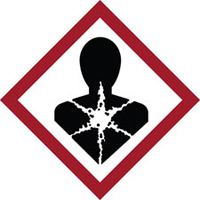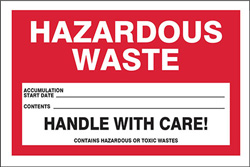| The Home page of ILPI's Safety Data Sheet (SDS) Resource, the leader in SDS information since 1995! | |
| The history and philosophy behind this resource. | |
| A curated collection of books and reference materials concerning Safety Data Sheets and closely related topics. | |
| Paste your plain text SDS into the SDS-Demystifier, and it will be converted into a hypertext-enriched document with links to detailed explanations of each key term. | |
| An extensive list of frequently asked questions about Safety Data Sheets including regulations, content, compliance, and more. | |
| A humorous take on Safety Data Sheet jargon. Fill in the blanks on our entry form to generate a personalized Unsafety Data Sheet to share with your coworkers. | |
| Since 1995, we've maintained this massive curated list of the best places to find Safety Data Sheets on the Internet. | |
| Way more than a glossary, this hypertext-enhanced resource covers hundreds of SDS-related terms and expert knowledge. Each entry includes both the SDS relevance and links to additional authoritative resources. | |
| Archived results of Safety Data Sheet related polls taken by some of our millions of site visitors | |
| You are here! The OSHA regulations behind SDS regulations, including the inspection guidelines and over 400 official interpretations letters under the Hazard Communication Standard | |
| Commercial suppliers of SDS authoring and management software as well as cloud compliance services. | |
| Commercial companies that will create SDS's for your specific needs as well as SDS translation companies. |

Safety signs, banners, and scoreboards? Get yours at Safety Emporium!
| Title: 11/09/1990 - Application of the Hazard Communication Standard to hydrotreated refined oils. | |
| Record Type: Interpretation | Standard Number: 1910.1200 |
November 9, 1990
Mr. Dave Peel
Vice President Manufacturing
BresLube
Post Office Box 130
Breslau, Ontario NOB 1MO
Canada
Dear Mr. Peel:
Thank you for your letter of October 11, regarding the application of the Occupational Safety and Health Administration's (OSHA) Hazard Communication Standard (HCS) to hydrotreated re-refined oils.
Your letter specifically raises two issues:
Issue No. 1:
Mr. J. D. Wilbourn of the International Agency for Research on Cancer stated in his letter of January 24, 1985 to Dr. P.R. Tyson of OSHA, "The conclusions on the refining of base oils are based upon data available to the Working Group and should not be extended to the refining of used oils or any other process that was not considered by the Working Group."
Our interpretation of this statement is that there is no evidence that re-refined oil is carcinogenic.

Get your GHS-compliant labels and signs from Safety Emporium.
Response:
Under the HCS, chemical manufacturers have the responsibility to "identify and consider" all available scientific evidence for the chemicals they produce or import to determine if they are hazardous. According to the information you presented above, the IARC Working Group did not study re-refined oils to determine their carcinogenic effects. In general, if an IARC monograph does not address a specific chemical or group of chemicals, the results of the monograph would not apply. This does not necessarily mean, however, as you concluded in your letter, that "there is no evidence that re-refined oils are carcinogenic." It is your duty as the chemical manufacturer to evaluate all other scientific evidence and available studies to determine if any other evidence exists that may indicate a carcinogenic (or other) health hazard is associated with exposure to these types of oils. Stated in another way, the fact that your type of refinery process or type of oil was not addressed in the IARC monograph, does not relieve you of the mandate to look elsewhere for other statistically significant evidence that carcinogenic or other health effects may result from employee exposure to re-refined oils.
Issue No. 2.
The re-refined base oils produced using a hydrotreating process at pressures above or below 800 psi and at temperatures below 800 degrees Fahrenheit are exempt from the requirement that the product be designated carcinogenic on the MSDS.
Response:
Enclosed for your information and review is a copy of OSHA's Federal Register notice of December 20, 1985, which provides the Agency's interpretation regarding lubricating oils and the HCS. The notice summarizes the Agency's position on the issue and may be useful to you as background information to the hazard determination you must perform for the re-refined oils you produce.

Get your hazardous waste labels from Safety Emporium.
Also enclosed is a copy of OSHA's compliance directive for the hazard communication standard, CPL 2-2.38C [in context: CPL 2-2.38D | current regulation: CPL 02-02-079]. This document is transmitted to all OSHA compliance personnel and provides policies, procedures and clarification of the HCS in order to ensure uniform enforcement of the standard. Appendix A to this document contains interpretations of certain provisions of the standard including a discussion of the applicability of the IARC's findings to lubricating oils and the applicability of the HCS (See page A-11). A description of the process parameters and carcinogenicity is provided which should also be useful to you for your hazard determination on your product. Specific guidance given provides that:
"Any oil will be considered to be mildly hydrotreated" [and therefore, according to IARC/monograph, no evidence of carcinogenicity exists for such oils] "if the hydrotreatment process was conducted using pressures of 800 pounds per square inch or less, and temperatures of 800 degrees Fahrenheit or less..."
Again, even these findings don't exempt a chemical manufacturer from performing a hazard determination on his product and checking all other sources of information for new evidence which may have been published since 1985 regarding the health effects of exposure to these oils. The HCS requires that MSDSs be updated by the chemical significant information." Chemical manufacturers therefore have a positive requirement to stay abreast of hazard information relative to the products they produce and transmit this information with the next shipment of a product after the MSDS has been updated.
I hope this discussion and enclosed information is helpful to you. Please feel free to contact us again if we can be of further assistance.
Sincerely,
Gerard F. Scannell
Assistant Secretary
The original official public domain version of this document is available from OSHA at https://www.osha.gov/laws-regs/standardinterpretations/1990-11-09-2.